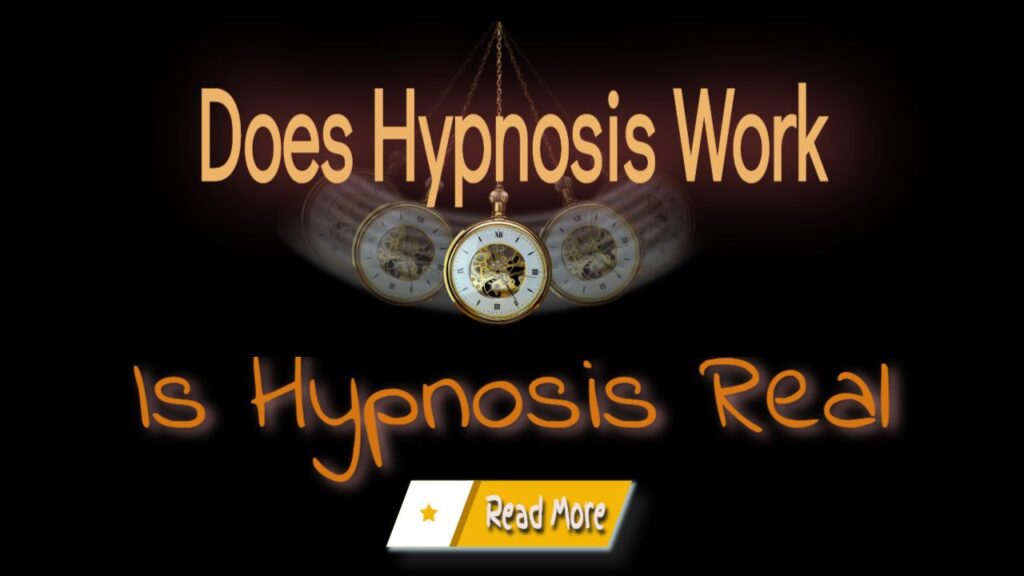Dive Deep into the Fascinating World of Hypnosis
- Unraveling the Truth About Hypnosis: Answers to 16 Frequently Asked Questions
- Understanding Hypnosis: An In-Depth Definition
- Clarifying the Differences Between Hypnosis and Hypnotherapy
- Discovering How Hypnosis Works: The Science Behind the Process
- Examining Brain Activity During Hypnosis: Insights into Internal Processes
- Therapeutic Uses of Hypnosis: Exploring Its Treatment Capabilities
- Busting Myths About Control in Hypnosis: What You Should Know
- Debunking the Sleep Myth: Is Hypnosis the Same as Sleeping?
- Truthfulness Under Hypnosis: Can You Really Lie?
- Is Hypnotism a Legitimate Practice? Common Myths Explored
- Top 8 Misconceptions About Hypnosis: Set the Record Straight
- Experience Hypnosis: Engage with Online Video Sessions
- Exploring Hypnosis and Mental Strength: Separating Fact from Fiction
Unraveling the Truth About Hypnosis
Many people often find themselves asking, does hypnosis truly work? The skepticism surrounding this practice frequently stems from widespread misconceptions and myths that have taken root in popular culture. To clear the air and alleviate any doubts, it’s crucial to tackle several common questions that typically emerge when discussing hypnosis:
1. How long will I remain in a hypnotic state?
2. Will I be compelled to act against my will?
3. Will I remember my hypnotic experience afterward?
4. Am I still aware of my surroundings while under hypnosis?
Editor’s Note: Citing Scientific American Mind, hypnosis is recognized as a legitimate phenomenon with a range of therapeutic applications, particularly in pain management. The stereotypical image of hypnosis, often depicted through a hypnotist swinging a pocket watch, leads to many misunderstandings about the practice. The truth is that hypnosis can evoke a focused state of awareness, enabling profound psychological and emotional healing.
If you’ve considered the potential benefits of hypnotherapy but remain hesitant about its effectiveness, you may have stumbled upon self-hypnosis audio recordings. While these alternatives can be cost-effective, doubts about their efficacy are widespread. Are pre-recorded hypnosis sessions genuinely capable of helping you achieve your objectives?
Whether you opt for a live session with a skilled professional or choose to use pre-recorded audio, the desired outcomes you aim for are fundamentally the same. Some experts contend that listening to a hypnosis recording can closely mimic the experience of being in a hypnotherapist’s office, with the primary difference being the facilitator’s role in guiding you toward your intended state.
Despite the well-documented effectiveness of hypnosis across various contexts, researchers continue to explore the intricate ways it impacts the brain. This ongoing investigation leaves many questions unanswered regarding how precisely hypnosis achieves its beneficial effects. Typically, hypnotherapy incorporates several common elements that can be customized to meet individual needs.
Informed Consent and Collaborative Client Engagement: An essential component of working with a hypnotherapist is the establishment of a trusting relationship. This foundational process usually begins with a conversation to discuss the possible risks and advantages of hypnosis, ensuring informed consent is obtained before any treatment commences.

Understanding Hypnosis: An In-Depth Definition
Working with clients during significant life transitions, such as starting a new job or coping with the aftermath of a major loss, often reveals their perceptions of hypnosis. Many express surprise when I suggest utilizing hypnosis as a method to navigate feelings of stagnation or to address unresolved trauma. They frequently conjure an image of a dramatic scene where they enter a deep trance and lose all memory of their experience—a portrayal often sensationalized in popular media. This portrayal not only raises ethical concerns within a therapeutic context but also lacks practical utility. Instead, my approach encourages a more interactive and imaginative process, wherein clients either maintain full consciousness or gently enter a light trance state.
Hypnosis is a formidable tool for managing and treating a diverse array of conditions. With the guidance of a certified hypnotist or hypnotherapist, individuals can achieve a profound state of relaxation, frequently described as a trance-like experience. In this altered state of consciousness, the practitioner may introduce suggestions intended to enhance receptiveness to transformation and facilitate therapeutic progress. Experiencing trance states is more common than many realize; for example, if you’ve ever found yourself absorbed in an engaging film or daydreaming, you’ve unconsciously tapped into a similar hypnotic experience.
To further delineate, it’s crucial to clarify what hypnosis is not. Contrary to its portrayal in films and television, which often showcase exaggerated scenarios, authentic hypnosis is a more ordinary yet profoundly effective process founded on natural psychological mechanisms.
Clarifying the Differences Between Hypnosis and Hypnotherapy
True hypnosis, often referred to as hypnotherapy, significantly diverges from the theatrical performances typically associated with stage hypnosis. In a therapeutic environment, the duration and structure of sessions are largely determined by individual circumstances and the specific issues being addressed. For instance, some clients seeking hypnosis for smoking cessation may only require a single session lasting up to two hours, while others grappling with more complex challenges might find ongoing weekly sessions to be beneficial. Your hypnotherapist will provide insight into the expected number of sessions needed while remaining adaptable to your changing needs throughout the therapeutic journey.
During the hypnotherapy process, a trained professional guides you into a state of heightened concentration or focused attention through verbal cues and repetition. Although this trance-like state may share similarities with sleep, you remain fully aware of your surroundings and retain control of your actions.
Self-hypnosis is another avenue individuals can explore, yet it can raise safety concerns, especially for those practicing alone. One prevalent fear is the idea of becoming “stuck” in a trance, which can be particularly disconcerting for those living independently. However, it’s essential to understand that you can emerge from a trance at any time you choose. Self-hypnosis poses risks only if practiced in unsafe situations, such as while driving or operating heavy machinery. Ideally, hypnotherapy should be conducted in a safe, comfortable environment, whether at home or in a therapist’s office.
At its core, hypnotherapy blends practice and belief. It doesn’t rely on mystical rituals or specialized substances. While elements of science, psychology, and philosophy play crucial roles in hypnotic practice, they do not define hypnotherapy itself. Instead, hypnotherapy represents a unique convergence of science, trust, and discipline, harnessing the inherent power of the subconscious mind that exists within each of us, ready to facilitate meaningful change.
Discovering How Hypnosis Works: The Science Behind the Process
My training in a technique known as depth hypnosis, developed by Isa Gucciardi, integrates principles from transpersonal psychology, shamanism, Buddhism, and hypnosis to create a powerful healing modality. I have successfully employed this multifaceted approach to assist clients in overcoming various challenges, including anxiety, panic attacks, depression, procrastination, and trauma, among others.
Hypnosis can be characterized as a heightened state of suggestibility that empowers individuals to reprogram their minds and bodies for success. This integrative process allows for the reconstruction of habits, behaviors, emotions, beliefs, and feelings. Have you ever immersed yourself in a task, losing track of time and your surroundings? This state of deep involvement is akin to a natural trance. Common examples include being captivated by a film or working diligently, only to realize that several hours have vanished from your conscious awareness.
In collaboration with your hypnotherapist, you engage as partners in the therapeutic journey. The therapist is not a controlling figure attempting to manipulate you; instead, they serve as a supportive ally devoted to helping you address your specific issues. Throughout most hypnosis sessions, clients remain attentive and cognizant of the process, with opportunities to ask questions and understand the theory of hypnosis. Additionally, hypnosis does not transport you to an alternate reality or subject you to unwanted experiences against your will.
For those interested in deepening their understanding of hypnosis, I recommend extensive reading on both stage hypnosis and its clinical applications. Familiarizing yourself with the historical context and mechanisms of hypnosis will enhance your understanding and appreciation of this captivating practice.
Examining Brain Activity During Hypnosis: Insights into Internal Processes
The human brain continuously emits electrical activity, transmitting various wavelengths throughout the day, even during sleep. However, it’s essential to note that hypnosis is distinctly separate from sleep. The brain operates through four primary stages of brainwaves:
– Beta waves – This state represents full wakefulness, where you are aware of your environment and engaged in active thought. As you read this article, you are likely in the beta stage.
The key to hypnosis lies in accessing your subconscious mind and effectively “rewriting” your automatic scripts. This process guides your thoughts along new, positive pathways, breaking free from the destructive patterns that may be holding you back. In the realm of neuroscience, this phenomenon is known as neuroplasticity, highlighting the brain’s remarkable capacity to change. Positive affirmations and suggestions made during hypnosis sessions are embedded within the subconscious mind, ultimately leading to transformative changes in thought patterns and behavioral responses in daily life, empowering you to adopt healthier self-care practices.
It’s a common misconception that individuals under hypnosis lack control. In reality, we all experience varying depths of hypnosis daily. Instances of daydreaming or becoming engrossed in an exciting television show are examples of natural trance states. During these moments, emotional responses can be triggered, such as feeling excitement or anxiety during thrilling scenes. The brainwave patterns observed in deep meditation align with the theta trance state, further illustrating the mind’s capacity for focused engagement.
Hypnosis has a long-standing history in healing practices, often drawing parallels to the placebo effect. As noted in a Harvard University article by Professor Ted Kaptchuk, the very act of engaging with a suggested treatment—even when one is aware it’s not a conventional medicine—can stimulate the brain to perceive healing, underscoring the power of the mind-body connection.

Therapeutic Uses of Hypnosis: Exploring Its Treatment Capabilities
When discussing hypnosis, it’s vital to differentiate its use as an entertainment medium from its application in clinical settings for therapeutic benefit. The phenomenon of stage hypnosis is primarily designed to entertain an audience by guiding willing participants into amusing behaviors or stunts under the direction of a hypnotist. Often, these participants have consumed alcohol and willingly engage in the performance for enjoyment.
During the majority of clinical hypnosis sessions, clients remain alert and aware, actively participating in the therapeutic process. They are educated about the principles of hypnosis and have the opportunity to voice any questions or concerns they may have, fostering an environment of transparency and collaboration.
You maintain complete control over your body during hypnosis. Contrary to the assumptions made by stage hypnosis, you are conscious of your actions and the requests made of you. If you feel uncomfortable with a suggestion, you can choose not to comply, illustrating the autonomy you retain throughout the experience.
One prevalent myth is that individuals lose control of their bodies when hypnotized. In reality, clients often leave sessions equipped with practical tools and techniques to implement changes in their lives, promoting self-empowerment and personal growth. A wealth of resources is available online, including options for free weight loss hypnosis and strategies to overcome various challenges through hypnotherapy. Once you grasp the fundamentals of hypnosis, you can effectively harness its potential for positive change.
Debunking the Sleep Myth: Is Hypnosis the Same as Sleeping?
Hypnosis is a mental state that individuals experience routinely, often at least twice daily. Historically, hypnosis has been recognized as a state of consciousness since ancient civilizations, including Egypt and Greece. The term itself is derived from Hypnos, the Greek god of sleep, which has contributed to the misunderstanding that hypnosis equates to sleep. However, this assumption is far from the truth.
Common myths and misconceptions surrounding hypnosis have proliferated, often fueled by its sensationalized portrayal in various media forms. This information aims to clarify the nature of hypnosis and dispel prevalent misunderstandings. One fundamental truth is that, contrary to popular belief, everyone possesses the capacity to be hypnotized, as it is a natural state of consciousness experienced by all individuals multiple times a day—during moments of awakening, sleep, and when deeply engrossed in captivating activities.
The entertainment industry has significantly shaped the public’s perception of hypnosis, leading to widespread misconceptions about its true nature. A recurring myth is that individuals under hypnosis are either asleep or unconscious. In reality, those in a hypnotic state are often more alert than ever; heightened awareness characterizes all stages of hypnosis, enhancing receptivity to suggestions and therapeutic interventions.
Myth Debunking: Truthfulness Under Hypnosis – Can You Lie?
While hypnosis has demonstrated efficacy in managing pain, stress, and anxiety, it is essential to recognize that cognitive behavioral therapy remains the preferred treatment for these conditions. Hypnosis is frequently integrated into comprehensive programs aimed at smoking cessation or weight loss; however, it may not be suitable for everyone. For instance, individuals who struggle to enter a hypnotic state may find it less effective. Research suggests that those who are more easily hypnotized tend to benefit more from the process.
Over the years, many individuals have sought hypnosis to recover lost items or memories. In numerous instances, I have successfully assisted clients in retrieving misplaced belongings. Academic literature supports the notion that hypnosis can enhance memory retention, with several studies indicating significant improvements in recall among hypnotized subjects compared to control groups.
In terms of eligibility for hypnosis, most individuals can be hypnotized, with exceptions including those with an IQ below 70, individuals experiencing psychosis, and most elderly individuals suffering from cognitive decline. You may have witnessed hypnotists performing on stage or in films, where participants engage in entertaining and humorous acts. Such performances often create a perception of hypnosis as a mere trick or illusion.
Can Anyone Be Hypnotized? Unlocking the Possibilities
If you are open to the experience, then you are likely to be hypnotized. Hypnosis techniques can be both overt and covert, and I utilize both approaches while always respecting the client’s preferences. Some individuals may find the process more challenging than others, making covert methods more suitable. Many wonder if they can practice self-hypnosis effectively, and the answer is yes. Self-hypnosis is a skill that can be cultivated with practice.
Dispelling Myths About Hypnosis: Is It a Real Practice?
The multitude of myths and misconceptions surrounding hypnotherapy often arises from misunderstandings related to stage hypnosis. In truth, stage hypnosis is predominantly a theatrical performance and bears little resemblance to authentic clinical hypnosis, which is grounded in therapeutic principles and practices.
Consider the daily trance states experienced during activities such as daydreaming or being captivated by a movie; these instances illustrate how engrossing imaginary events can evoke real emotions like fear, joy, or sadness. Some researchers categorize these experiences as forms of self-hypnosis, as Milton Erickson, a renowned expert in hypnosis, posited that individuals hypnotize themselves daily. However, most psychiatrists focus on achieving trance states through intentional relaxation and concentration techniques.
Hypnosis is a natural phenomenon that poses no inherent risks. You cannot be coerced into behaviors or beliefs that contradict your values, nor can you become “stuck” in a hypnotic state. The entertaining representations of hypnosis in media often lead to exaggerated beliefs and fears. For further clarification on the numerous myths and misconceptions surrounding hypnosis, explore other sections of our website, where you can find accurate information to dispel these common misunderstandings.
Understanding suggestion in the hypnotic context is critical; it refers to the subconscious acceptance of an idea. Mastering the art of suggestion is vital for success in hypnosis. The process of inducing a hypnotic state and controlling it relies heavily on effective suggestions. The more familiar you become with the subconscious mind and the principles governing suggestion, the more proficient you will be in harnessing the power of hypnosis.

Addressing Common Misconceptions About Hypnosis
It’s no surprise that numerous myths surround hypnosis, primarily stemming from media portrayals in fictional works, as noted by Irving Kirsch, a lecturer and director of the placebo studies program at Harvard Medical School. However, beyond pop-culture clichés, hypnosis is a well-researched and legitimate form of adjunctive therapy for various conditions, including obesity, postoperative pain, anxiety, and stress management.
The divergence between entertainment and clinical hypnosis is considerable. Understanding what hypnosis truly entails is essential to gaining an accurate perspective on its effectiveness as a therapeutic approach. If you have a strong apprehension about hypnosis, consider visiting my page dedicated to addressing the fear of being hypnotized, which clarifies many misconceptions surrounding this practice.
It’s a misconception that individuals cannot lie while under hypnosis. The truth is that a person can
Comments are closed


Your exploration of the many facets of hypnosis raises some intriguing points, particularly around the misconceptions that persist in popular culture. It’s fascinating how hypnosis is often confused with mere entertainment, overshadowing its potential therapeutic applications. For example, I’ve seen firsthand how clinical hypnotherapy can aid in pain management and anxiety reduction, which contrasts sharply with the stereotype of a stage hypnotist making people cluck like chickens.
You’ve touched on a crucial point about how hypnosis is often misrepresented in popular culture. Many people think of it solely as entertainment, likely because that’s what’s most visible to them. The dramatic performances of stage hypnotists can overshadow the genuine therapeutic benefits that clinical hypnotherapy offers.
Your exploration of hypnosis delves into a captivating intersection of science, psychology, and personal well-being. I have always been intrigued by how deeply hypnosis taps into the subconscious mind, often blurring the lines between awareness and control.
It’s cool to hear you find hypnosis fascinating! The way it bridges science and psychology is intriguing, especially how it lets us peek into the subconscious. It’s like having a conversation with a part of ourselves that we don’t usually engage with. A lot of folks are surprised by how hypnosis doesn’t just help with things like stress or breaking habits, but also opens doors to exploring memories and emotions that can feel pretty buried.
I’ve always found the topic of hypnosis to be both intriguing and complex. In my experience, there seems to be a huge gap between the popular misconceptions and the actual science behind it. The way you’ve structured this exploration of hypnosis really touches on many facets that I think are often overlooked by those who aren’t familiar with the practice.
I completely resonate with your observation about the gap between popular misconceptions and the actual science of hypnosis. It’s fascinating how movies often portray it as some sort of mind control, but in reality, it’s much more nuanced and rooted in psychological principles.
It’s fascinating how the topic of hypnosis often stirs such curiosity and debate. Your point about the gap between popular misconceptions and actual science truly resonates. Many people still hold onto outdated stereotypes, picturing a stage performer swinging a watch and putting someone into a trance. What’s often overlooked is how nuanced and well-researched hypnosis is, especially in the fields of psychology and medicine.
You bring up such a great point about the gap between what people think they know about hypnosis and what it actually is. It’s like there are these wild misconceptions floating around, often influenced by movies or TV. I mean, people often picture a swinging pocket watch and someone clucking like a chicken! But when you dive deeper, the science reveals so much more, especially about how hypnosis can tap into the subconscious and aid in things like stress relief or pain management.
I find it super interesting how hypnosis is often seen as this mysterious, almost magical thing, but there’s so much more to it than the stereotypical “swinging watch” routine. I remember watching a documentary about how some therapists use hypnosis to help people manage pain or anxiety. It really opened my eyes to its potential as a therapeutic tool.
I find the topic of hypnosis incredibly intriguing, especially with the myths that surround it. Growing up, I always thought of hypnosis as something straight out of a comedy show—one where the hypnotist has total control over the subject, making them cluck like a chicken or something ridiculous. It wasn’t until I attended a workshop on stress management that I saw a different side of it. The facilitator used hypnosis to help us relax and focus, which genuinely changed my perception.